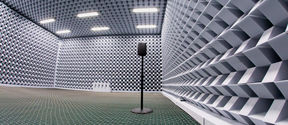During the evaluation of eligible applicants, applications are first evaluated based on the following criteria:
- Academic performance
- Relevance of previous studies
Only the applications who fulfil the requirements for these criteria will be evaluated against the full set of evaluation criteria. It is not possible to compensate for these criteria with other criteria.
After the evaluation of the remaining criteria below, the best applicants will be selected based on the joint evaluation of all criteria.
- Recognition and quality of institution
- Suitability
- Other areas of competence
The admission process is very competitive and only the best applicants are selected yearly. Not all applicants fulfilling the requirements can be admitted.
Applications missing any of the required study-option specific documents i.e. motivation letter and curriculum vitae are rejected, and not evaluated against any of the evaluation criteria.
The documents requested from all applicants are listed here (https://www.aalto.fi/en/study-at-aalto/applying-to-masters-programmes). In addition, applicants to this study-option are requested to provide the following study-option-specific documents:
- Motivation letter*
- Based on your application documents (transcript of records, CV, other supporting documents), reflect on your
- relevant experience and achievements,
- expectations and motivation for MSc studies majoring in Signal Processing and Data Science at Aalto University, and
- future career aspirations and how MSc studies in Signal Processing and Data Science contribute to them.
- The motivation letter should be written in English. The recommended length is one page (font size 11 pt).
- Curriculum Vitae (CV)*
*) The lack of this document will cause rejection.
In addition, these additional documents add value to your application:
- At least one original recommendation letter
- The recommendation letter should preferably be from a university professor, lecturer or a thesis instructor who has supervised the applicant’s studies. There are no specific instructions for the contents of the recommendation letter. The letter should comment on the applicant’s suitability and aptitude for the programme. Recommendation letters written by work supervisors are accepted as well in case some time has passed since graduation.
- Short course descriptions of courses taken in the relevant subject areas (see the list above in section Evaluation Criteria, 2. Relevance of previous studies for major Signal Processing and Data Science)
- Work certificates and certificates of other relevant achievements
- Copies of any scientific publications
- Official transcript of records for other university studies which are not included in the mandatory part of the application (e.g., incomplete degrees, exchange studies, non‐degree studies)
- GRE or GMAT test results, if available.
General instructions on study-option-specific documents
All additional application documents described above should preferably be submitted in English. If some other language than English, Finnish or Swedish is used in them, the applicant must provide precise, word-for-word translations of them.
Upload the documents to your online application form in pdf-format. Name the file(s) according to format: Name of the document-Lastname-Firstname (e.g. CV-Lastname-Firstname.pdf). Maximum file size is 1.0 GB.
The study-option-specific documents must be uploaded for each study option separately, even if you use the same document (e.g. CV). Please check carefully the study-option-specific document requirements for each study option you apply to.
The deadline for the study-option-specific application documents to be uploaded to your application form is the same as for the general application documents.












